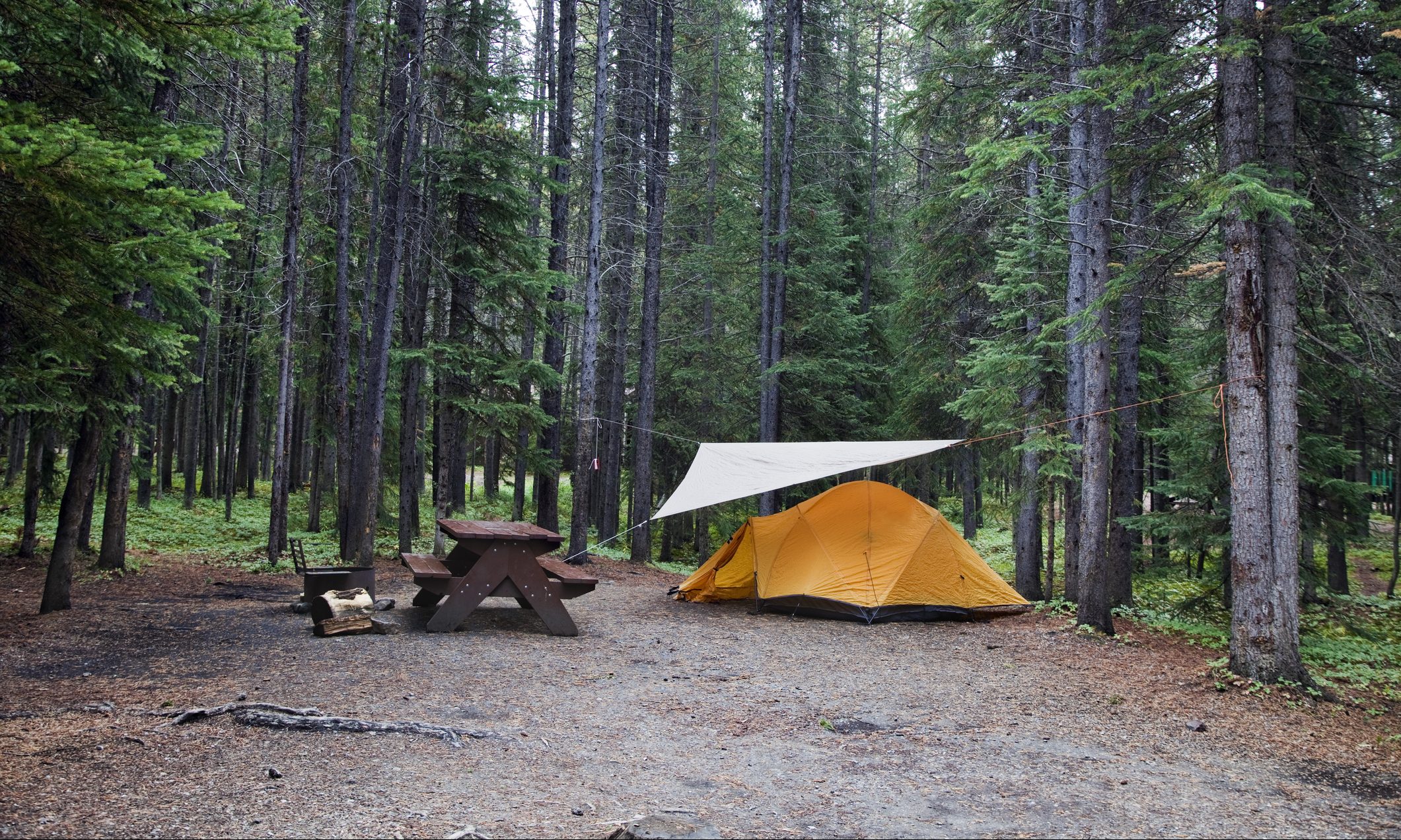

We all like to think of camping as an escape to the great outdoors—and it is, of course—but it’s important to not forget that we’re still sharing these spaces with others. That means following a set of rules, both spoken and unspoken, when camping in tents, whether you’re at a popular campground or roughing it in the backcountry.
Videos by Outdoors
Some of these rules you’ll find posted on signs or campground handouts, but many of them you won’t, as they’re often gleaned from experience instead. So, whether it’s your first foray into camping or you’re a seasoned camper seeking a little refresher course on campsite courtesy, let’s jump into the tent campsite rules to keep in mind.
Planning ahead and getting set up
1. Research regulations in advance
Whether it’s at a campground in a state park, dispersed camping on managed lands or even in the wilds of the backcountry, it’s important to know the local rules that you need to abide by. Some campsites designate exactly where you can park, make a fire and set up your tent. Other campsites give you a little more freedom to arrange your setup, especially if you’re dispersed camping.
2. Abide by the campground’s occupancy rules
Some campgrounds allow for multiple tents to be pitched and multiple cars to be parked on one campsite, while others do not. That means that no, you might not be allowed to pitch two tents on one campsite. Be sure to plan ahead, make proper travel arrangements and book enough campsites to accommodate your group.
3. Try not to crowd anyone or anything
If you have the choice, avoid pitching your tent too close to your neighbors, and try to pick a durable surface that has already been impacted to avoid trampling fragile plantlife. A good rule of thumb is to set up camp at least 200 feet away from the nearest campsite and trails—both for your own privacy and out of respect for other campers and hikers—and at least 200 feet from the nearest water source to limit pollution. Also, be aware of any rules regarding hammocks, if you plan to bring one; some areas prohibit them because they may cause damage to trees.
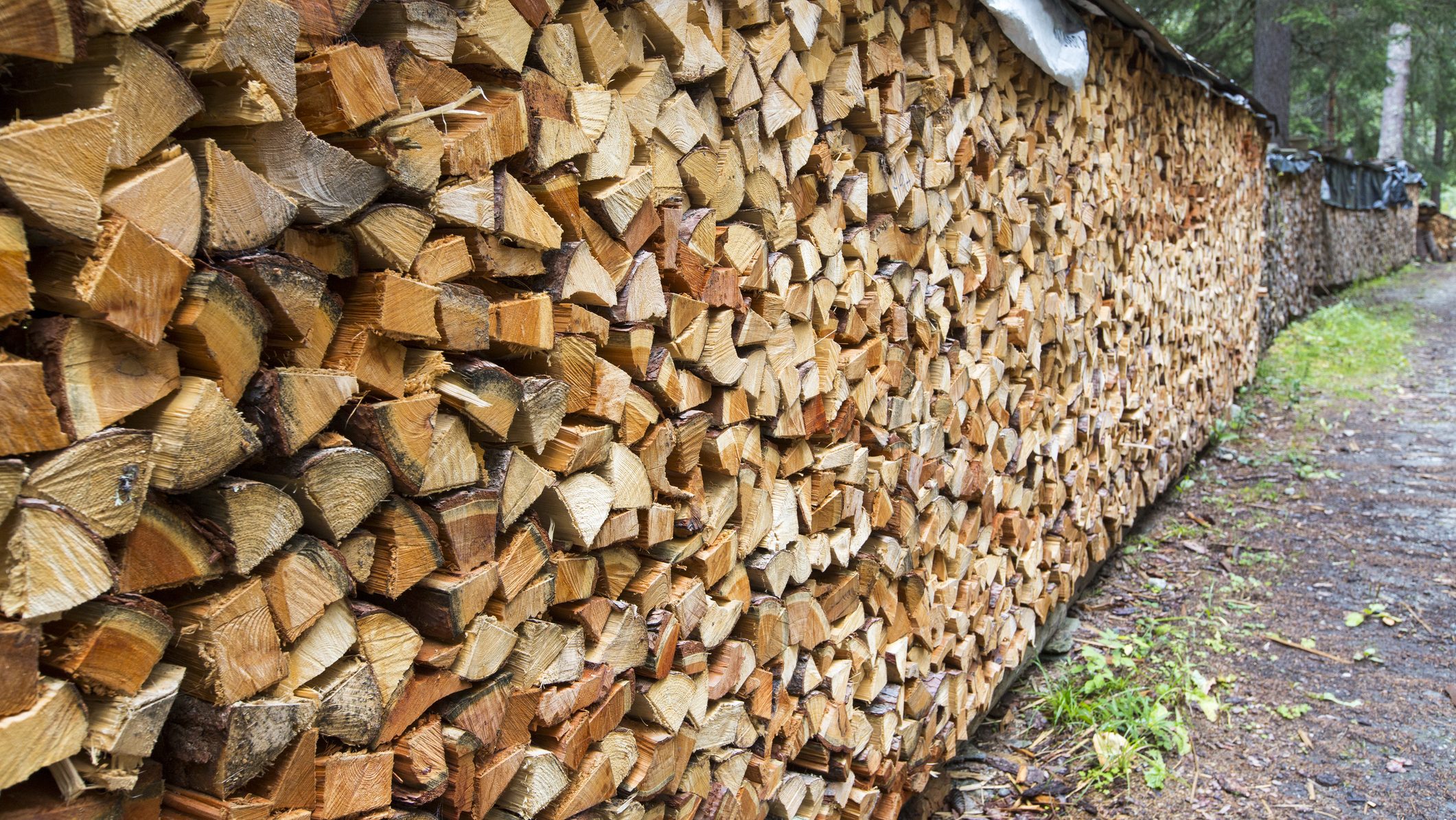
4. Don’t bring your own firewood
Buy wood for your campfire at the campground or from a vendor local to the campsite to avoid introducing invasive species that can cause harm to the area. And no, you can’t take wood from the forest to burn; cutting live trees without a permit is illegal in many places, and you may even incur a fine for making fire with dead and down wood.
5. Arrive before dark, if possible
You’ll save yourself and your fellow campers a lot of frustration by getting to and setting up your campsite before the sun goes down. Plus, some locations won’t even allow check-ins after a certain time. If you happen to arrive after dark, set up just the bare minimum and then finish the rest in the light of day. And, in the same vein, try to avoid packing up to leave too early on departure day, too.
Campsite cleanliness, courtesy and caution
6. Follow fire safety precautions
Be mindful of current fire bans, and never build a fire when it’s windy. Any fires should be kept small and contained within the campsite’s fire pit or fire ring, if one is provided. Always put your fire out before going to sleep or leaving your site unattended for any reason—and make sure that the coals are cold or the ashes are drenched in water so they can’t reignite.
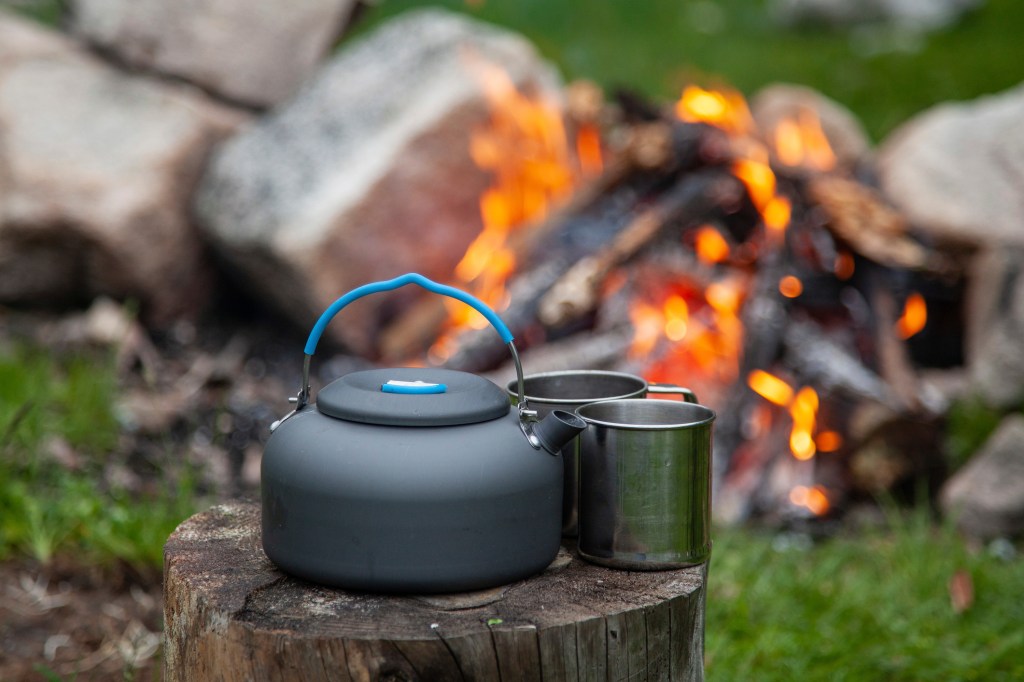
7. Pack away anything with a scent
When not in use, all food, drinks, toiletries, sunscreen and even cleaning products should be secured in containers that animals cannot access, or else you’ll attract everything from bugs (at best) to bears (at worst). If allowed, lock those containers inside your vehicle if you have one at your campsite, or hang them from a tree where animals can’t reach. Also, be sure to properly dispose of any potentially tempting scraps and all other garbage in the bins provided at your campground or in locked bins of your own—not in your campfire. This not only keeps your campsite safe, but it also keeps animals self-sufficient and healthy and prevents them from becoming aggressive around humans in the future.
8. Don’t leave untethered gear unattended
If a big gust of wind can pick it up, send it flying across the campground and cause real harm to someone, make sure it’s weighted down or otherwise secured before you leave your site.
9. Never cut through someone else’s campsite
Think of it this way: That’s their personal space that they’ve paid to use during their stay at the campground, so keep to the designated walkways, roads and trails—even if it takes twice as long to get to where you’re headed.
10. Give your fellow campers some space
Many people have careful routines that they go through when setting up their campsite. It’s best to wait until your fellow campers are settled in before making conversation lest they get distracted and miss a crucial part of their setup.
11. Be mindful of shared campground facilities
This includes toilets, showers, laundry areas, cook halls, playgrounds and so on. Don’t leave a mess behind for others to clean and don’t commandeer the facilities for an excessive period of time. Also, don’t use the bathroom sinks to wash your dishes; it takes time and space from other people, and it’s gross to have to wash your face in a sink where someone just rinsed off plates full of burger juice. If there isn’t a designated dishwashing station at the campground, plan ahead or just grab a bucket of water to bring back to your campsite.
12. Dim your lights at night
When driving around the campground after dark, turn off your headlights and use your lowlights instead—and drive slowly and carefully, regardless of time of day. Use lanterns and flashlights at your campsite or while walking around the grounds, and be mindful of where you shine them. Also, turn off any big lights outside your tent before going to bed.
13. Lower your volume, too
Be mindful that voices, dogs’ barking, music, generators and other sounds carry very easily in these outdoor spaces, especially in the stillness of night and early morning. This goes double if your campground is near a lake—noise bounces off that calm surface like a trampoline! Most, if not all, campgrounds have designated quiet hours to ensure campers can rest up for their morning hike or simply enjoy the sounds of nature. (Parents of young kids who finally fell asleep will appreciate your courtesy as well.) And, even if it’s not during quiet hours, other campers really don’t want to hear your music blasting, no matter how epic your playlist may be. So if you’re planning to camp out with friends for a party-fueled weekend in the woods, seek out a campsite that’s more private.
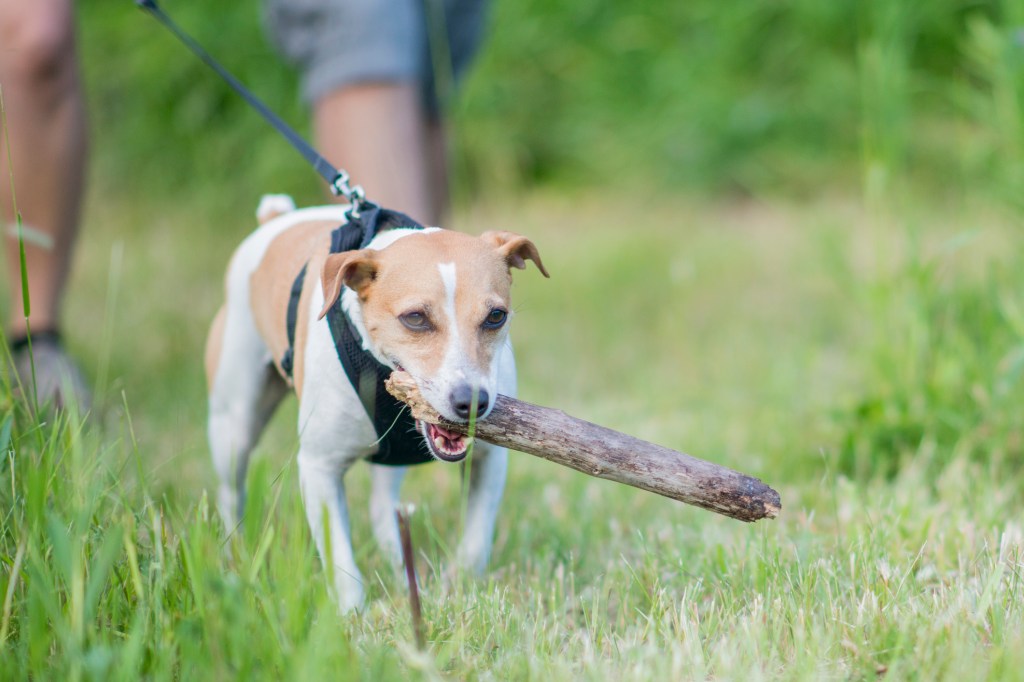
14. Keep your pet leashed
Even if the campground or land management agency doesn’t require it, do it anyway. Even the most well-behaved pup can get excited about other campers’ food or a small animal scampering around the area. It’s best for their safety and the enjoyment of other campers—especially little kids and those who may have allergies—if you keep them reined. Never leave them unattended either.
What it means to “leave no trace”
15. Pack out your trash —all of it
If there are no garbage bins provided at your campground, you need to take your trash with you. And yes, that even includes the “organic” stuff like vegetable peels, fruit rinds, and any treasures your pets may have left behind. Just because a bear gets to you-know-what in the woods, that doesn’t mean you get to leave your dog’s waste behind at the campsite or on the trails! (If you’re at a more rustic campsite without facilities, be sure to properly dispose of your own waste and toilet paper too.)

16. Leave the campsite in better condition than you found it
If you (or the campers before you) made a mess, clean it up and pack it out. If you moved the picnic table from one end of the site to the other, put it back where it was. And if you or your pets dug any holes, fill them in for the next campers’ safety.
17. Leave your extra firewood for the next camper
This is generally the one and only exception to the “leave no trace” rule at your campsite, and it’s a great opportunity to accrue some camping karma. Besides, if you live more than 50 miles from the campground, you can’t take it with you anyway.
The bottom line on camping etiquette
Everyone’s there to enjoy the outdoors and have a good time, so treat your campsite with the same respect you’d treat your own backyard. And as long as you abide by common courtesy and etiquette, and be kind and respectful to others, we’ll all be very happy campers!
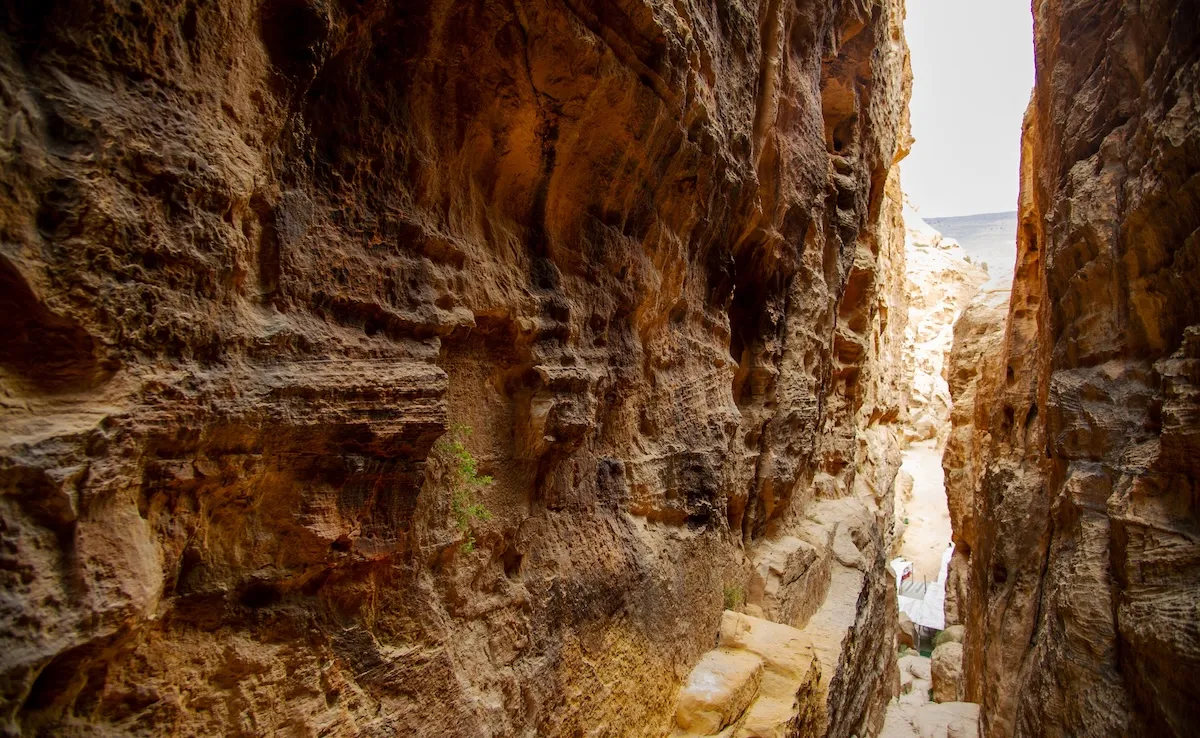
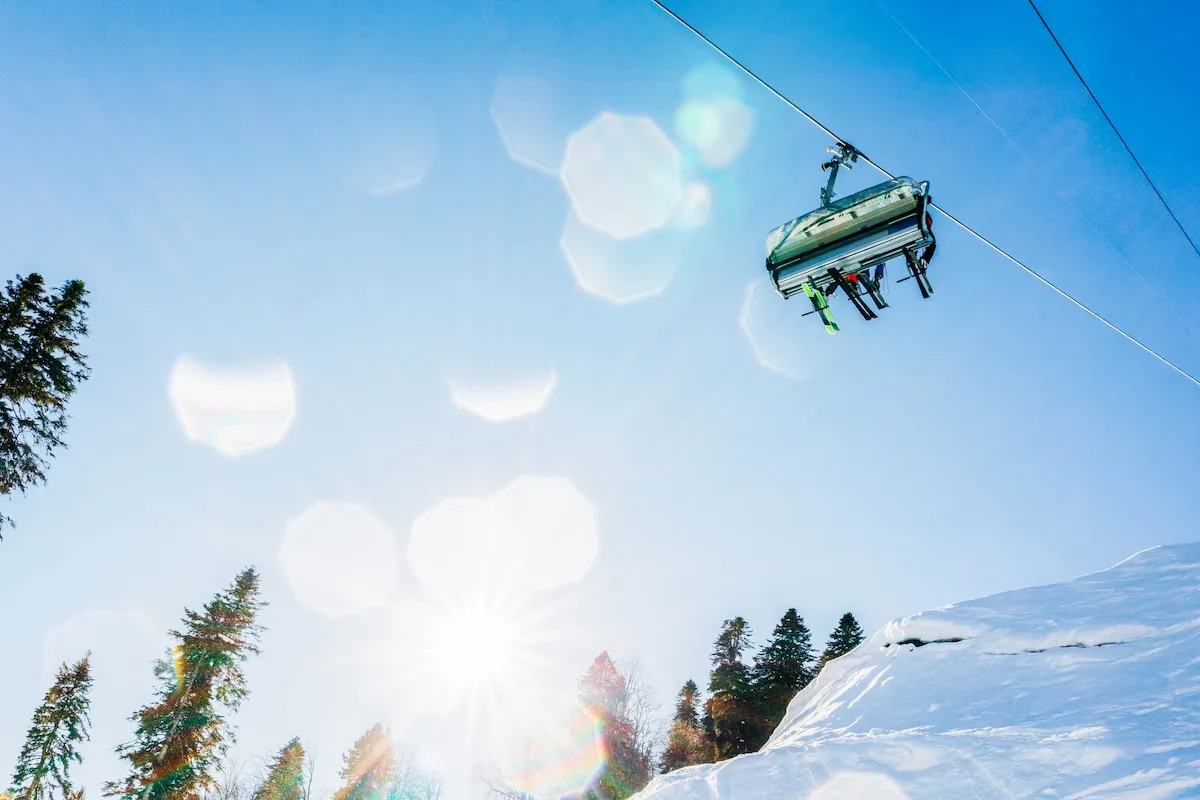
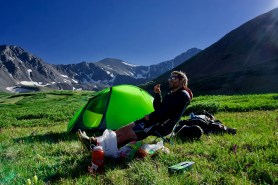


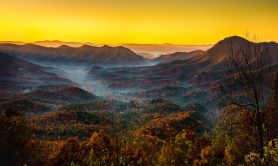
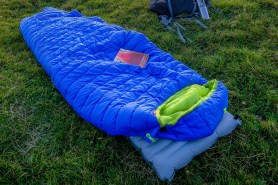
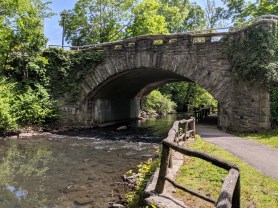


Raised my four daughters on the following rules and have shared them with multiple groups of kids:
1) don’t wander off by yourself
2) don’t play with the fire
3) don’t shine your flashlight in other people’s eyes
4) leave it better than you found it
5) never eat fries without catsup.
Where can I tent camp for free all year round? Keep up the good work outdoors
We will work on that answer! In the mean time here is a cost saving hack!
https://outdoors.com/get-into-national-parks-for-free/
I love this site!
Bear is the man!
Slab city in southern California
There are few if any places that will let you tent camp in one location all year round. Most free campsites are on federal or state land and every one I know of caps the number of days you can camp at one location.
There are some private campgrounds that will rent sites long-term, but of course that isn’t free.
There’s a remote chance you could find a private land owner who will let you set up a long term camp on his property.
camp in one location all year round. Most free campsites are on federal or state land and every one I know of caps the number of days you can camp at one location.
There are some private campgrounds that will rent sites long-term, but of course that isn’t free.
There’s a remote chance you could find a private land owner who will let you set up a long term camp on his property.
Legally, nowhere that I’m aware of other than homeless camps. I think in SD, you can get a PO box and that can be a legal address. If you have a relative who let’s you use their address, you might could pull it off but WHY? I live in a camper and that’s hard enough. Just get a van, it’s much safer than a tent unless you want to pay a monthly fee at a campground.
It’s like everything else, common sense and good manners.
Amen!
Bear Grylls is the man Dan!
Les stroud ftw
Campers oblivious to #13 can easily ruin a trip for multiple other parties. Imagine waking up on the shores of a beautiful rocky inlet on an otherwise peaceful lake to the persistent sounds of river rocks “pinging” off an aluminum baseball bat. After every swing, the dog barks. Now, multiply each one of these by two as the sounds echo off the rock cliffs across the inlet. Somebody almost died that day!
Bring poop bags for the pup
This is the most obvious tips ever.
One overarching rule covers it all: behave in a way that nobody else knows you’re there or ever were there.
Leave your music at home and be quiet.
Exactly. My dog is quiet and so am I. It isn’t difficult.